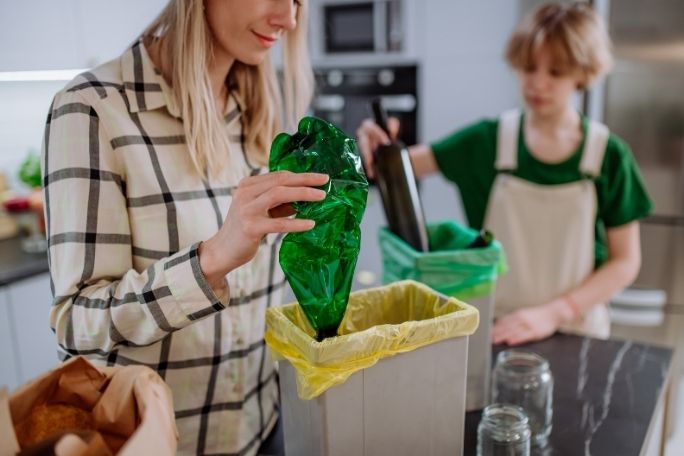Lesson summary
In this activity students will investigate the life cycle of a common piece of waste, something that we throw away so frequently we barely even notice it. Students will create a poster or computer based image around the process and present this to the class.
Learning intentions:
Students will...
- understand that even the most ordinary pieces of waste can have a very involved life cycle.
Lesson guides and printables
Lesson details
Curriculum mapping
Australian Curriculum content descriptions:
Year 7 English:
- Use comprehension strategies to interpret, analyse and synthesise ideas and information, critiquing ideas and issues from a variety of textual sources (ACELY1723)
- Plan, draft and publish imaginative, informative and persuasive texts, selecting aspects of subject matter and particular language, visual, and audio features to convey information and ideas (ACELY1725)
- Use a range of software, including word processing programs, to confidently create, edit and publish written and multimodal texts (ACELY1728)
Year 7 Science:
- Communicate ideas, findings and solutions to problems using scientific language and representations using digital technologies as appropriate (ACSIS133)
- Science and technology contribute to finding solutions to a range of contemporary issues; these solutions may impact on other areas of society and involve ethical considerations (ACSHE120)
- Some of Earth’s resources are renewable, but others are non-renewable (ACSSU116)
Year 8 English
- Create imaginative, informative and persuasive texts that raise issues, report events and advance opinions, using deliberate language and textual choices, and including digital elements as appropriate (ACELY1736)
- Use a range of software, including word processing programs, to create, edit and publish texts imaginatively (ACELY1738)
Year 8 Science
- Science understanding influences the development of practices in areas of human activity such as industry, agriculture and marine and terrestrial resource management (ACSHE136)
- Communicate ideas, findings and solutions to problems using scientific language and representations using digital technologies as appropriate (ACSIS148)
Time required: 48+ mins
Level of teacher scaffolding: Medium – assist students in identifying life cycle processes.
Resources required
- Pieces of waste (students select their own – safe and clean),
- Internet access
Additional info
This is an original Cool.org lesson. Facts and figures in these lessons may have changed since this lesson was published. We always endeavour to update our resources in a timely manner, but if you see an error or issue in our resources please get in touch with us.


Welcome back!
Don't have an account yet?
Log in with:
By signing up to Cool.org you consent and agree to Cool's privacy policy to
store, manage and process your personal information. To read more, please see
our privacy policy here(Opens in new tab).
Create your free Cool.org account.
Many of our resources are free, with an option to upgrade to Cool+ for premium content.
Already have an account?
Sign up with:
By signing up to Cool.org you consent and agree to Cool's privacy policy to
store, manage and process your personal information. To read more, please see
our privacy policy here(Opens in new tab).